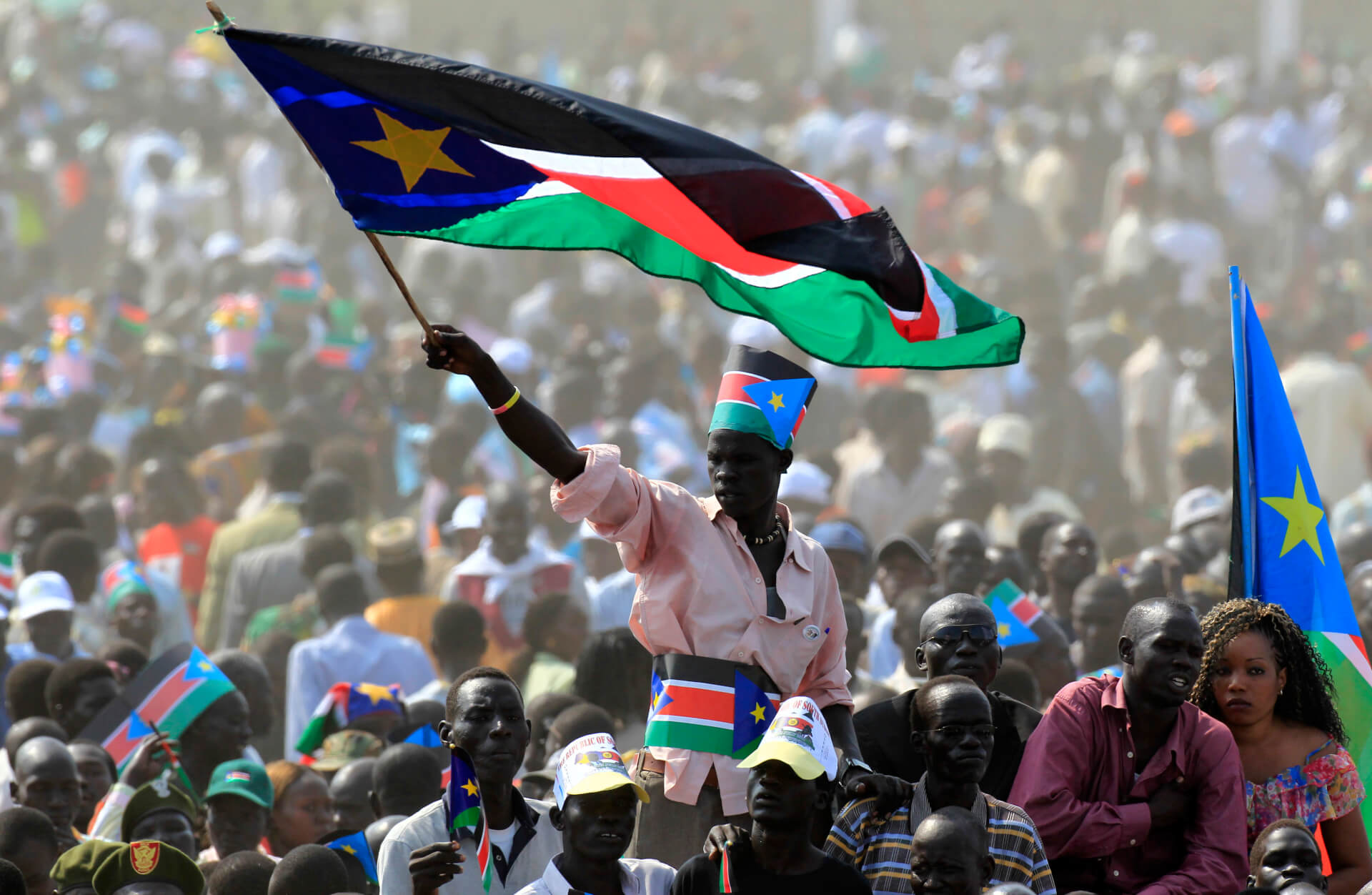South Sudan marked a decade of independence on Friday amid struggles to overcome the effects of a deadly six-year civil war that began in 2013. The celebrations are expected to be muted as the nation deals with the COVID-19 pandemic, chronic hunger levels, a worsening economic crisis, and increasing violence.
The government of South Sudan has ordered citizens to mark Independence Day celebrations in private due to the pandemic. Deputy Information Minister Baba Medan said the Council of Ministers expressed concerns over holding events amid rising COVID-19 cases. “His Excellency [President Salva Kiir] orders the public, the citizens of South Sudan, to celebrate in their own homes,” Medan told reporters on Thursday. He added that Kiir would read a speech that will be broadcasted on television and radio.
Meanwhile, the international community, including the United Nations (UN) and the United States (US), have congratulated the country. The United Nations Mission in South Sudan (UNMISS) released a statement on Thursday calling the occasion an “important opportunity to inject fresh momentum” into the peace process. However, the statement noted that the country “continues to face many obstacles to sustainable peace, including the lack of a unified security force, pervasive insecurity related to intercommunal conflict and opportunistic crime driven by economic deprivation.”
Similarly, US Secretary of State Antony Blinken said the US is proud to support the people of South Sudan” and is committed to working with regional and international actors to build lasting peace, stability, and prosperity in the country.
The troika of the US, the United Kingdom, and Norway called the event a “joyous occasion” and urged “immediate action to ensure access for humanitarian aid and end violence” in South Sudan. “The great challenge now facing South Sudan is to recapture the sense of unity, strength, and hope that prevailed on this day ten years ago,” the statement read.
However, South Sudan remains plagued by rising violence and a deteriorating humanitarian crisis. Aid organisation Mercy Corps has called for “urgent action” to help combat extreme hunger levels in the country. “The country is facing the worst food security and nutrition crises globally. About 8.3 million people—three-quarters of the population—need humanitarian assistance to survive,” it stated, adding that the COVID-19 pandemic has raised the price of food by 42% over the last year, driving more people into humanitarian need.
The country has also been witnessing an economic decline recently. According to the World Bank, South Sudan’s economy is “vulnerable to weather, oil price, and conflict-related shocks.” Living standards have deteriorated, and people have little or no access to basic services, with surveys conducted in 2020 showing more than 50% of respondents reporting reduced earnings. The World Bank adds that poverty levels are “extremely high,” with around 82% of the population categorised as poor.
To add to these woes, South Sudan has also been witnessing rising levels of violence. As per the UN, there has been a “massive escalation of violence” locally. It noted that a lack of local and national infrastructure and a power vacuum at the local level had fuelled communal violence.
South Sudan attained freedom from Sudan in 2011 after a 21-year civil war between the Sudanese government and the Sudan People’s Liberation Army (SPLA). The conflict, one of the longest civil wars on record, resulted in nearly two million deaths and displaced around four million South Sudanese. Sudan and the SPLA signed a Comprehensive Peace Agreement to end the war in 2005, and in 2011, nearly 99% of South Sudan’s population voted for independence. However, in 2013, the country once again descended into chaos after President Kiir accused Vice President Riek Machar of orchestrating a coup. The political rivalry quickly turned into an ethnic conflict between the majority Dinka tribes and the Nuer people, resulting in a civil war that killed almost 400,000 people and displaced millions.
A peace deal was signed in 2018 by Kiir and Machar to end the war by agreeing to form a unity government and bring in constitutional reforms. However, the progress has been limited so far, and the elections set for 2022 have been postponed to 2023. In this regard, the UNMISS stated that “it is important that these issues are addressed through the full implementation of the Revitalised Agreement [2018 peace deal] which provides a credible framework for bringing durable peace.”

